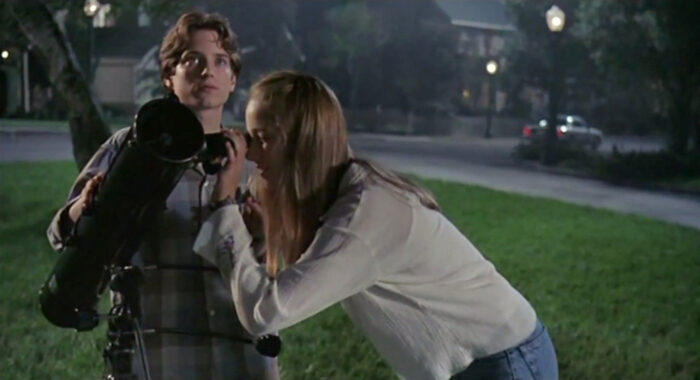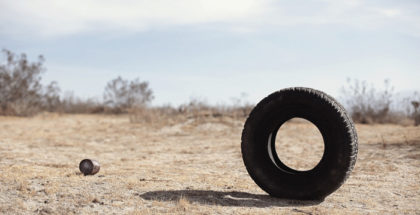VOD film review: Deep Impact (1998)
Review Overview
First half
7Second half
9Actual impact
5Mark Harrison | On 16, Apr 2021
Director: Mimi Leder
Cast: Téa Leoni, Robert Duvall, Elijah Wood, Maximilian Schell, Morgan Freeman
Certificate: 12
Whether it’s Dante’s Peak vs Volcano or Olympus Has Fallen vs White House Down, there’s a long history of movies with similar stories landing within a few months of one another in blockbuster season. By far the biggest of these was the clash of the planet-killer movies in the summer of 1998 and, while Michael Bay’s Armageddon was by far the most popular, there’s still something to be said for its immediate forerunner, Mimi Leder’s Deep Impact.
Once earmarked for Steven Spielberg to direct, the film was originally conceived in the late 1970s as a remake of 1951’s When Worlds Collide. In the mid-1990s, the project collided with an adaptation of The Hammer of God by Arthur C Clarke, combining drafts by writers Bruce Joel Rubin (who previously wrote Ghost) and Michael Tolkin. When Touchstone announced Armageddon as a rival project, a movie space race was ignited, with Mimi Leder stepping in to direct for DreamWorks while Spielberg was off making The Lost World: Jurassic Park, Amistad and Saving Private Ryan back-to-back-to-back.
Arriving a couple of months ahead of its Bayhem rival, Deep Impact starts with teenage astronomy enthusiast Leo Beiderman (Elijah Wood) spotting an object in space, which fellow astronomer Dr Wolf (Charles Martin Smith) identifies as a potential planet-killer. A year later, TV journalist Jenny Lerner (Téa Leoni) stumbles upon the classified preparations for the Wolf-Beiderman comet hitting Earth when a routine assignment brings her face to face with US President Tom Beck (Morgan Freeman).
In the months that follow the President’s announcement of these plans to the nation, the United States leads a massive international effort to avert extinction, both through a daring space mission led by veteran astronaut Spurgeon Tanner (Robert Duvall) and a secondary plan to safely house a selection of the population in vast underground caves. Perhaps it’s a product of scripts colliding that makes this one feel like a film of two halves.
The first half covers much of the same ground as Armageddon, the more hoo-rah, dumb-fun version of America preparing the world for a possible extinction level event. But the point at which Bay’s film ends comes about halfway through Leder’s story and serves as the pivot into a more bittersweet and stoic second half, which has more in common with this year’s surprisingly superb Greenland.
Beyond little Elijah Wood nobly dashing back into harm’s way for the family he’s left behind, the funereal, melodramatic tone of the film’s second half is what distinguishes it from its main competition. It feels novel for a film of this size to consider the alternative to the traditional Hollywood ending, not trading on the surprise deaths that come as part and parcel of the disaster movie genre but contemplating mortality instead.
It’s only a shame that the ending itself somewhat deflates the film, and the grand action that the title suggests is confined to an underwhelming, effects-heavy sequence and a strangely perfunctory epilogue. You can see why the “better things aren’t possible” approach is less fondly remembered than the rip-roaring Bayhem approach but, up until the climax, the script and ensemble work serve up a more ruminative punch than Armageddon.
If this big-screen space race was a product of parallel thinking, Deep Impact appears to have done the thinking for both of them. Although Armageddon can’t be beat on big cinematic emotion and spectacle, Leder’s anxious Earthbound pace deserves to place an honourable second.
















